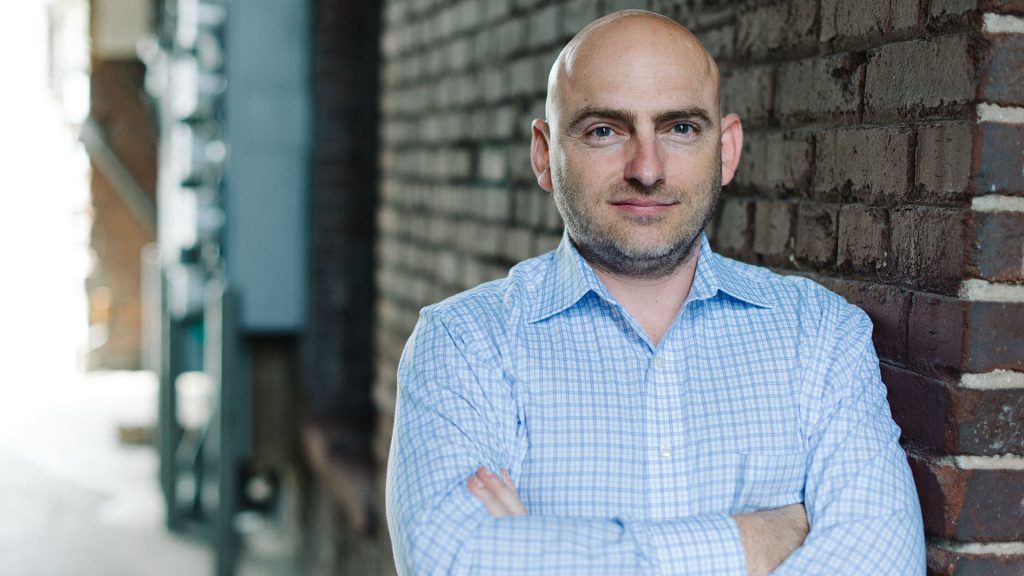Peter Platzer co-founded Spire with the vision of gathering data from a network of small satellites from any location on Earth. He is considered one of the pioneers of the commercial space industry in terms of earth observation.
As his company raised an additional $70m with the Luxembourg Future Fund (LFF) and now plans to set up European headquarters in Luxembourg, Spaceoneers spoke to him at the New Space Europe conference. We asked him about the main challenges of setting up a space business in Europe, how it compares between countries and regions, and what lessons we can learn from the likes of Luxembourg in terms of its regulatory framework.
Briefly tell me a little about your background, first of all
I’m originally from Austria. I’m a high-energy and fusion physicist by training. I spent some time at CERN and the Max Planck Institute and then realised that the space industry at that point in time was not where my business mind would have desired. I was hired by the Boston Consulting Group, first into Germany where I was in Düsseldorf and then Asia. They then sent me to Harvard Business School where I again looked into the space industry with fellow students there – same result.
I spent almost a decade, as a quantitative investment manager in New York before realising at NASA Ames in 2009 there was an executive programme at Singularity University – and that now there is tremendous change happening in the space industry. After some more research I decided to get (hopefully) my last degree in France, learning about space science in management. There I met my co-founders, Joel Spark and Jeroen Cappaert, and we decided to start a company.
How did your business come about? What were your main influences?
Discussions with the faculty at Singularity University, Peter Diamonds in particular, made me realise there is a tremendous amount of change. I coined it later the “tri-factor of change” – shrinking government budgets, new technology, and the emergence of billionaires in space. Then I went to Strasbourg to International Space University (ISU). There I met Joel and Jeroen where we looked into this new technology of nanosatellites, I ran a study there and I looked into the business ecosystem of nanosatellites. We founded the company based on a number of principles perhaps we couldn’t so well articulate back then. Today we highlight three main pillars: we collect data where nobody else can, we collect data not the size of sensor but the number of sensors creating value, we collect data where the sensors are programmable and re-programmable by software to really bring Moore’s Law to space. We combine these things and that brings us to a proprietary data set on which to build our data analytic products.

What were the biggest challenges in getting started?
We had to a little bit hide the real prize we were after. I was just in the presentation by Gwynne Shotwell (President & COO of SpaceX) – an incredibly inspiring and phenomenal individual. Elon Musk started SpaceX raising money for it based on his mission of building a colony on Mars. He did that after he was already a PayPal billionaire and an incredibly famous and successful individual. He then had the social and financial capital to tell the world I’m going to do something which sounds crazy. Neither Joel, Jeroen nor myself, when we started Spire could tell the world that we wanted to make weather forecasting as accurate as train schedules. It was considered to be impossible to collect the relevant data from small satellites. Nobody would have believed we could do better weather forecasting than NOAA, the UK Met Office and other agencies. We had to create a product that was real and believable to get us to where we are today to do those things. Doing something in an industry that is ‘out-of-this-world’ both literally and figuratively is a big challenge. If you try to do something too far out you need an incredible amount of social capital to attract investors and employees. If you don’t have that it is difficult.
How does it compare setting up a business in the US to in Europe?
Setting up a business in the UK was not particularly difficult. We had looked for start-up capital in Strasbourg and wanted to stay there but that proved impossible. I think the difference between the U.K. and Europe in general is access to risk capital. From a per person perspective the U.S. has twice as much money and risk capital available per person than the UK and four times the average in Europe. Sometimes European countries want to say the U.S. is so much bigger than Europe. If you just look at it on a per capita basis, Europe is about the same as the U.S. They have roughly the same size of economies, GDP and same numbers of people. Yet the support for highly risky ventures – I would say Spire was and continues to be a highly risky venture – you find significantly more support in the US than in Europe.
How do you think Europe can attract more venture capital?
I don’t have the exact numbers but I think in terms of investable money that Europe has just as much as in U.S. It is generally invested in fixed income securities and real estate than in entrepreneurship. It’s not necessarily about attracting more money but about changing the mindset for a more risk-seeking culture. I don’t know the answer to that.
You have offices in Singapore, so how does that compare?
I think you have to separate Singapore a little bit out from Asia. I think an office in Singapore versus Thailand, Malaysia, China or Japan is very different. Singapore is an extremely well organised country and has a lot of similarities to Luxembourg in the sense it is small and a lot of effort is spent on the government’s side to create economic diversity and economic growth. They think about industries that don’t require large amounts of people or large amounts of land. I think that makes Singapore quite special.
You have quite a unique company culture. Could you tell us a bit about that?
I truly believe that the solely traditional way of thinking about companies that U grew up with is not fit for 21st century. I think the drive of people in a much better economic environment than two generations ago or a hundred years ago has pushed us much, much further up in terms of needs. Individuals sometimes called the millennials are far closer to this drive for seeking autonomy, mastery, and purpose. That is an anchoring principle in how we structure the company. We expect people to really drive for excellence through relentless growth. That’s the mastery purpose. There might be some individuals that don’t strive for that but I think many want to define the areas they want to have mastery. It is exactly opposite from micromanagement. This is your area over which then you have autonomy and this is what you expect.
We instead measure the autonomy of individuals and we spend resources in trying to increase autonomy and reward greater autonomy as people drive towards mastery. I think purpose is something that is built into the human soul, I would say. It’s maybe one of the entrepreneurial traits of optimism that you believe people search for a purpose for something that is meaningful – that gives their life greater meaning than just by themselves. Thankfully Spire through its mission and means of space provides a tremendous amount of meaning and purpose for people. Then we combine that with an entirely different approach towards a measure of performance. Instead of performance reviews once a year we have quarterly career discussions with a set of questions such as ‘how is your autonomy doing?’, ‘how is your mastery doing?’, ‘how is your purpose doing?’, ‘what do you enjoy and how can you do more of that?’, ‘what don’t you enjoy and how can you do less of that?’, ‘what do you want to learn?’, ‘where do you want to be in 3-7 years?’, ‘what job do you want to do after Spire and what things do you need to learn to get ready for that responsibility?’ There’s a whole bunch of another elements of how we’ve structured the company and I think that’s reflected in the culture and the people that we try to attract. It aims to inspire.

Is it true you’ve never fired anyone?
It’s not entirely true. In the Spire talent system is a very clear statement that if you do something inappropriate, illegal or insubordinate then you’re gone. There is a zero tolerance approach there, of course. Thankfully that extremely rarely ever happens. But I think what we most often find is people realise however much the company tries and they try the alignment between what they see as their purpose and or their mission with what the company needs at that moment in that role can diverge, then they go somewhere else. We are extremely supportive of that.
Finally, can you tell us more about your plans to open a headquarters here in Luxembourg?
We’re super-excited to be here. I think Luxembourg is a really exciting place. The single greatest challenge of scaling an organisation is people. Once you have figured out the space piece, it’s sort of an iteration to get better. Then there’s a crossover point where managing a larger organisation becomes the primary challenge of the company. Luxembourg is a place where you can attract people from all over the world and for example. in the U.S. attracting highly skilled software developers very often are not U.S. citizens and you have a lot of visa challenges there. You don’t have that problem in Luxembourg – so we find this fantastic. Second element for a space data company is that you have to keep scaling the space side and Luxembourg has phenomenal experience in supporting the regulatory side to build constellations in new space. We consider this to be very valuable.

